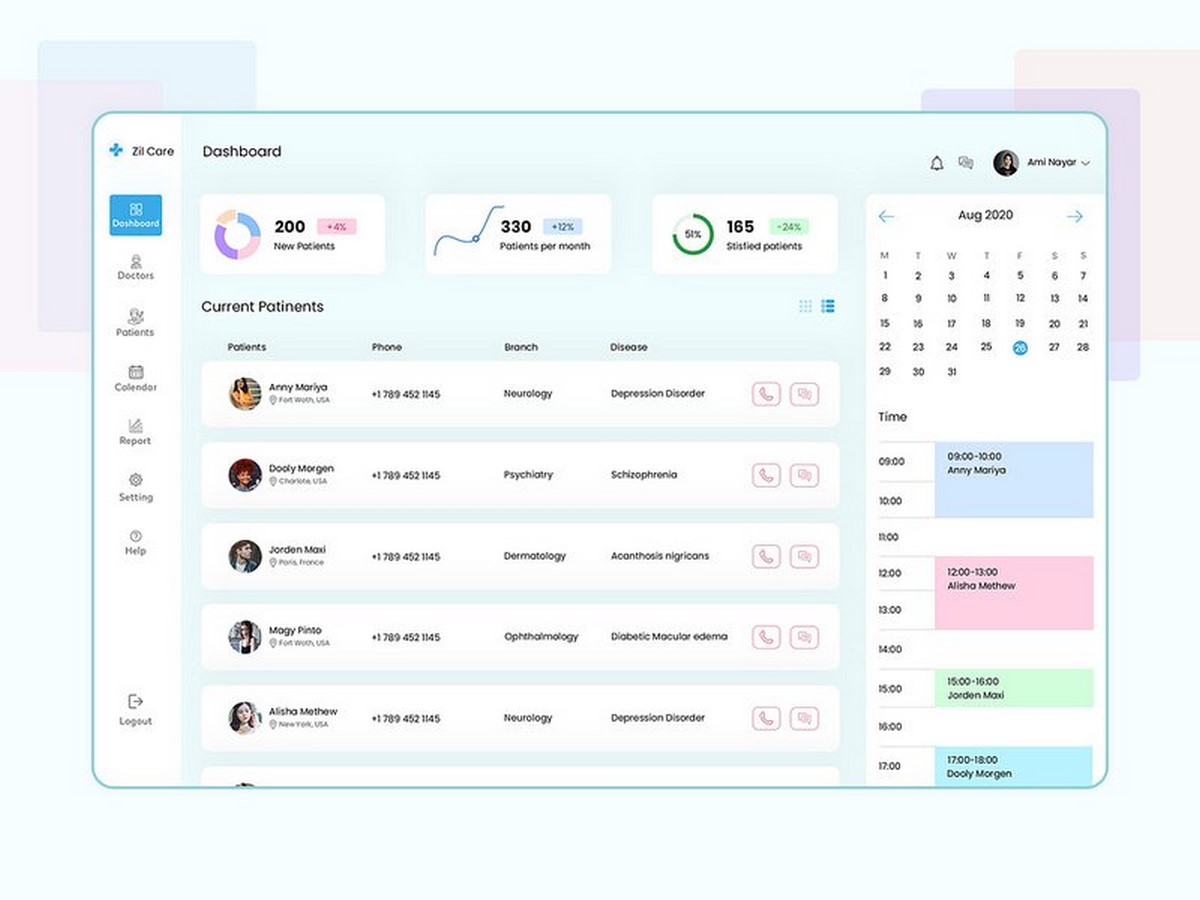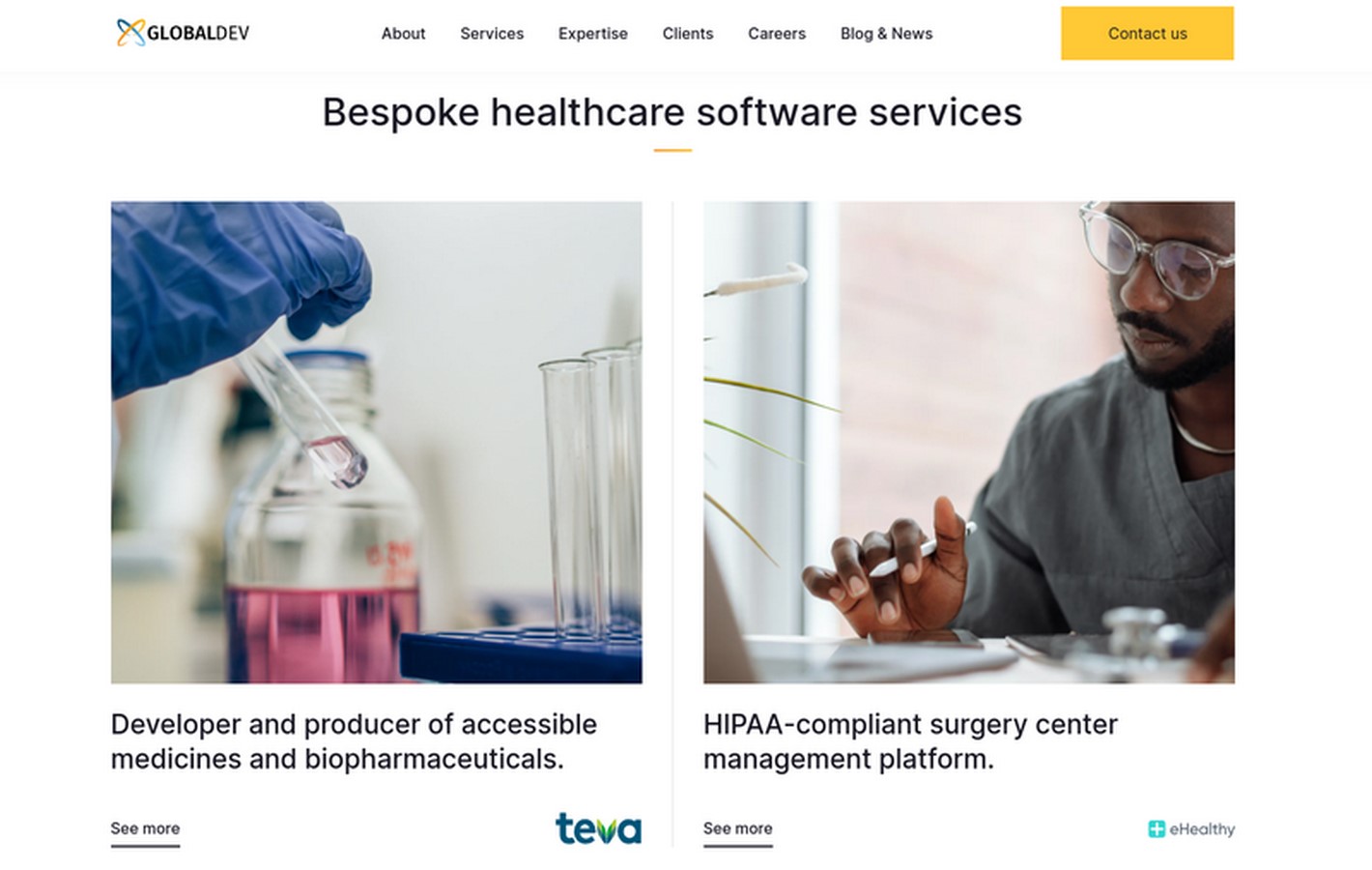In today’s digital era, the healthcare industry faces significant challenges in maintaining efficient communication and collaboration among patients and healthcare providers. Despite technological advancements, the integration of technology into healthcare remains inadequate. However, the adoption of Customer Relationship Management (CRM) systems offers a promising solution to bridge this gap and revolutionize healthcare delivery.

Understanding Healthcare CRM
A Healthcare CRM system serves as a comprehensive platform for connecting doctors with patients, facilitating seamless interactions, and optimizing operational processes. By providing real-time visibility into patient care flow and automating administrative tasks, CRM software enhances communication and efficiency within healthcare organizations.
The Case for Custom CRM Software
While off-the-shelf CRM solutions abound, investing in custom CRM software tailored to the unique needs of healthcare organizations offers several distinct advantages:
- Tailored Solutions: Healthcare organizations have diverse structures and requirements. Custom CRM software ensures that the system aligns precisely with the organization’s workflow and operational needs, optimizing its effectiveness.
- Enhanced Security: Given the sensitive nature of healthcare data, custom development allows for the integration of robust security measures from the outset. Features such as data encryption, HIPAA-compliant storage, and multi-factor authentication mitigate the risk of cyber threats and ensure compliance with regulatory standards.
- Data Unification: Healthcare encompasses various services and departments, resulting in disparate data sources. Custom CRM software enables the seamless collection and harmonization of data across different systems, enhancing coordination and decision-making.

Benefits of Medical CRM Development
Implementing a custom CRM system in healthcare offers a myriad of benefits, including:
- Error Reduction: Automation of administrative tasks minimizes human errors and ensures the accuracy of medical records, enhancing patient safety and quality of care.
- Appointment Management: Centralized appointment management and automated notifications reduce no-shows and streamline scheduling, improving operational efficiency.
- Insight Generation: Advanced analytics capabilities provide valuable insights into patient satisfaction, departmental performance, and referral patterns, enabling data-driven decision-making and process optimization.
- Patient Engagement: Email campaigns and personalized communication foster patient engagement, while integrations with existing systems enhance productivity and communication.
Target Users and Applications
Healthcare CRM software caters to a wide range of medical establishments, including hospitals, clinics, urgent care centers, and primary care offices. Its versatility makes it indispensable for managing patient interactions, streamlining administrative tasks, and enhancing overall service quality.
Essential Features of Clinic CRM Systems
While the specific features of a healthcare CRM system may vary based on organizational requirements, some key functionalities include:
- Patient Database: A centralized repository for patient information, facilitating personalized care and communication.
- Medical Histories: Comprehensive storage of patient health records, diagnoses, and appointments, enabling holistic patient management.
- Appointment Management: Automated appointment scheduling, tracking, and notifications, optimizing resource utilization and patient satisfaction.
- Analytics: Advanced reporting and analytics capabilities for performance monitoring, trend analysis, and decision support.
- Email Campaigns: Targeted email campaigns for appointment reminders, patient education, and marketing initiatives.
- Integrations: Seamless integration with Electronic Health Record (EHR) systems and other healthcare software for data exchange and interoperability.

Navigating CRM Development
Embarking on a healthcare CRM development journey requires careful planning and selection of a competent development partner. Here are some practical tips for navigating the process:
- Choose an Outsourcing Destination: Select an outsourcing destination based on reputation, expertise, and cost-effectiveness, considering factors such as geographical location and market presence.
- Set a Budget: Compare costs from different development agencies while prioritizing quality and expertise over price alone.
- Review Portfolios and Feedback: Evaluate the portfolios and client feedback of potential development partners to gauge their expertise and reliability.
- Define Selection Criteria: Identify criteria such as transparency, adherence to industry standards, and data security protocols to guide your selection process.
Conclusion: Transforming Healthcare Delivery
In conclusion, custom CRM software holds immense potential for revolutionizing healthcare delivery by improving communication, efficiency, and patient engagement. By investing in tailored solutions and selecting the right development partner, healthcare organizations can unlock the full benefits of CRM technology and pave the way for a more connected and patient-centric future in healthcare.


















